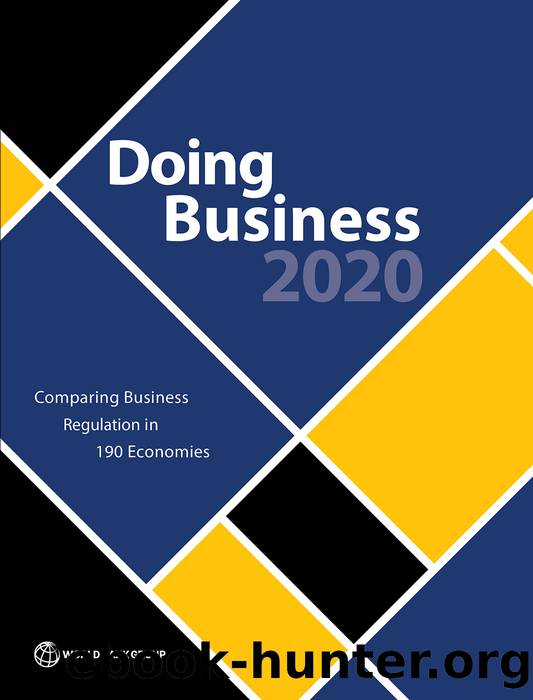Doing Business 2020 by The World Bank

Author:The World Bank
Language: eng
Format: epub
Flexibility of hours
To capture the flexibility in legislation governing working hours, the employing workers indicator set measures the length of the workweek, restrictions and premiums on nonregular working hours (such as night work, weekly holiday work, and overtime work), and the length of paid annual leave. Research shows that greater employee freedom in choosing working hours leads to higher productivity.16 Nevertheless, daily hours must not be set so high that workers become susceptible to fatigue and reduced productivity.17 Ninety percent of economies have a workweek that is between five and a half and six days. In 2018/19 Austria and Hungary reformed in the area of working hours. Austria increased overtime to 12 hours per day and 60 hours per week.18 Hungary raised its overtime allowance to a maximum of 400 hours per calendar year. In 2016, Hungary also removed restrictions on working hours for retail stores, allowing them to open on Sundays.
Paid leave is the period during which workers take time away from their job while continuing to receive an income and social protections.19 Doing Business measures annual leave days for workers with 1, 5, and 10 years of tenure. With 23.4 working days on average, the Middle East and North Africa is the region with the most paid annual leave, followed by Sub-Saharan Africa with 21.7 days. Workers in Guinea, Libya, and Togo, for example, are entitled to annual leave of 30 working days on average, one and a half times the global average of 18.8 days (figure 4.2). However, 9 out of every 10 employees in Sub-Saharan Africa operate in the informal sector;20 therefore, the intended social protection provided by paid leave reaches only a select few.
FIGURE 4.2 Economies in the Middle East and North Africa and Sub-Saharan Africa have the longest paid annual leave
Download
This site does not store any files on its server. We only index and link to content provided by other sites. Please contact the content providers to delete copyright contents if any and email us, we'll remove relevant links or contents immediately.
The Brazilian Economy since the Great Financial Crisis of 20072008 by Philip Arestis Carolina Troncoso Baltar & Daniela Magalhães Prates(138779)
International Integration of the Brazilian Economy by Elias C. Grivoyannis(111057)
The Art of Coaching by Elena Aguilar(53249)
Flexible Working by Dale Gemma;(23292)
How to Stop Living Paycheck to Paycheck by Avery Breyer(19727)
The Acquirer's Multiple: How the Billionaire Contrarians of Deep Value Beat the Market by Tobias Carlisle(12327)
Thinking, Fast and Slow by Kahneman Daniel(12301)
The Radium Girls by Kate Moore(12028)
The Art of Thinking Clearly by Rolf Dobelli(10487)
Hit Refresh by Satya Nadella(9132)
The Compound Effect by Darren Hardy(8965)
Tools of Titans by Timothy Ferriss(8393)
Atomic Habits: Tiny Changes, Remarkable Results by James Clear(8343)
Turbulence by E. J. Noyes(8047)
A Court of Wings and Ruin by Sarah J. Maas(7844)
Change Your Questions, Change Your Life by Marilee Adams(7780)
Nudge - Improving Decisions about Health, Wealth, and Happiness by Thaler Sunstein(7706)
How to Be a Bawse: A Guide to Conquering Life by Lilly Singh(7486)
Win Bigly by Scott Adams(7195)
